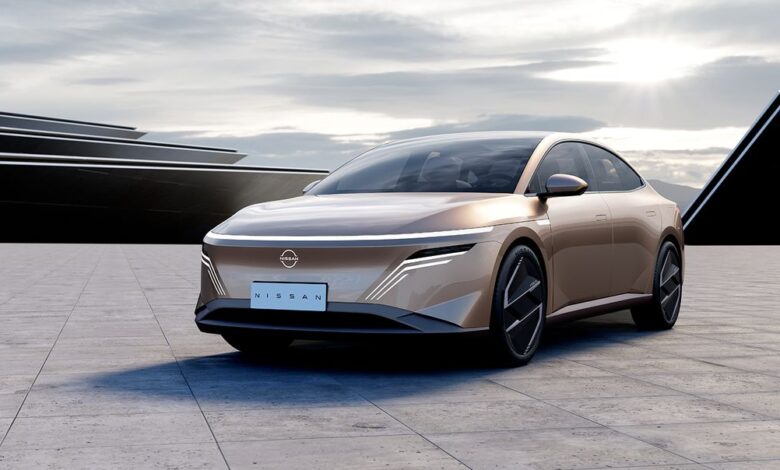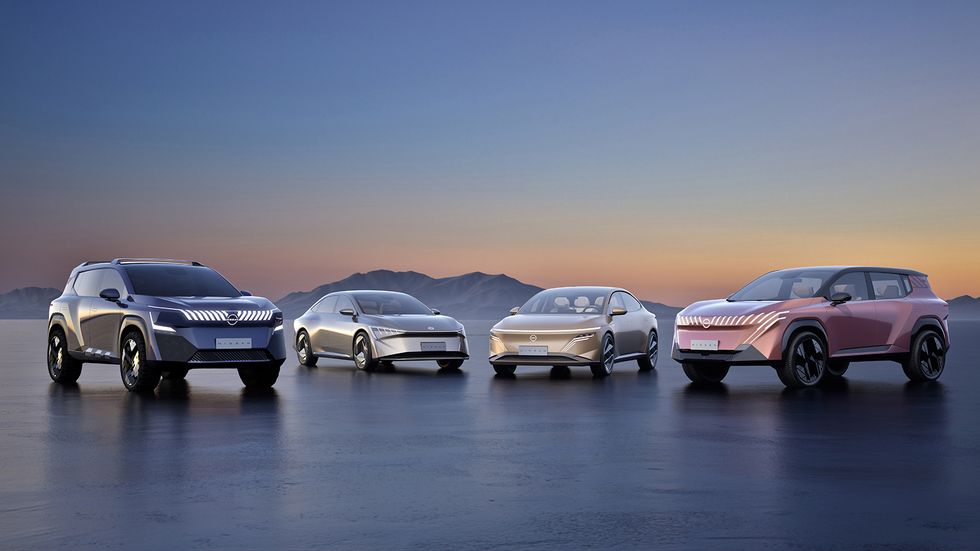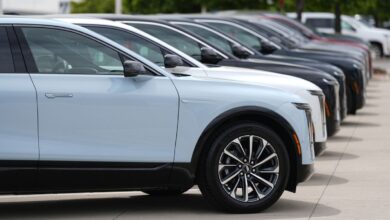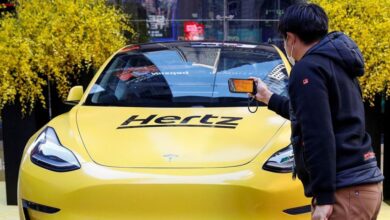Will Nissan’s All-Electric Sedan, Previewed in China, Come to US?

- Nissan unveils the Epoch electric sedan concept in China, previewing a model aimed at the rapidly growing EV market in the country that is slated to be built with local partner Dongfeng.
- The automaker has recently unveiled a three-year business plan dubbed The Arc, to overhaul most of its lineup, but the possibility of a US-bound electric sedan has not been aired as part of that plan.
- Nissan’s latest EV is the Ariya crossover, sales of which have started stateside after a few delays.
Nissan may have been a pioneer in the EV sphere with the Leaf hatchack, but there are still many segments that remain underserved in the US. For instance, besides the Tesla Model 3 we haven’t seen many other affordable midsize or compact electric sedans materialize in the US or Europe.
Nissan used the Beijing Auto Show to give the world a preview of what its electric sedan could look like, with the debut of the Epoch concept.
Revealed alongside three other New Energy Vehicles—as hybrids and battery-electric models are collectively termed in China—the Epoch is one of two BEVs among them, previewing a midsize sedan that is expected to go into production across the Pacific rather soon with help from joint venture partner Dongfeng.
More importantly, it’s a rare window into Nissan’s evolving design language when it comes to battery-electric models.
The automaker has opted for a sleek and rather minimalist fastback shape with the Epoch sedan design. The front fascia features a wraparound strip of lighting and a blunt, concave nose, while the rear features a similar thin taillight strip. Boomerang-shaped headlight elements hint at the unique LED shapes to come.
The most unusual visual elements are the wheels, showcasing a look we haven’t seen from Nissan in production form.
However, the automaker hasn’t revealed the interior design of this concept just yet.
“The concept has an AI-expanded Internet of Things, and its virtual personal assistant makes life easier and more comfortable through communication that recognizes emotions,” Nissan said of the Epoch sedan, adding that it’s aimed at suburban and urban young go-getters, as the automaker put it.
While there are several elements in common with other sedans offered in China by automakers that have been clearly inspired by Tesla, the Epoch concept reveals a few unique elements that we can likely expect to see from Nissan in the longer term, and not just in China.
In all, Nissan plans to launch five new models in China by fiscal year 2026, with at least two battery-electric models among them. As such, the Epoch and other concepts revealed by Nissan aren’t headed stateside, giving a hint as to the automaker’s priorities in various key markets.
“Starting with new energy vehicles to be based on the concepts unveiled today, Nissan will build a balanced product portfolio of diverse and competitive new models.” Nissan President and Chief Executive Officer Makoto Uchida said. “Our aim will be to provide a more exciting mobility experience to all customers in China.”
The issue of a midsize, premium electric sedan for the US remains a curious one, as most automakers have not opted to take on the Model 3 directly until very recently. And we’ve yet to see serious competition to the Model 3 materialize.
A month ago Nissan unveiled The Arc—its business plan for the next three years—carving out a greater role for hybrids in its lineup, but remained measured in its approach to BEV models.
As part of that plan, Nissan plans to launch seven new models in North America by 2026, but just how many new EVs we could see in 2026 and beyond is an open question for now.
In all, Nissan expects electrified (if not battery-electric) models to account for 60% of its model mix by 2030. So it still sees plenty of longer-term demand for hybrids, PHEVs, and internal-combustion models.
Should Nissan field a competitor to the Tesla Model 3 in the US, or is such a model not worthwhile as EV demand appears to be slowing down? Let us know what you think in the comments below.

Jay Ramey grew up around very strange European cars, and instead of seeking out something reliable and comfortable for his own personal use he has been drawn to the more adventurous side of the dependability spectrum. Despite being followed around by French cars for the past decade, he has somehow been able to avoid Citroën ownership, judging them too commonplace, and is currently looking at cars from the former Czechoslovakia. Jay has been with Autoweek since 2013.




